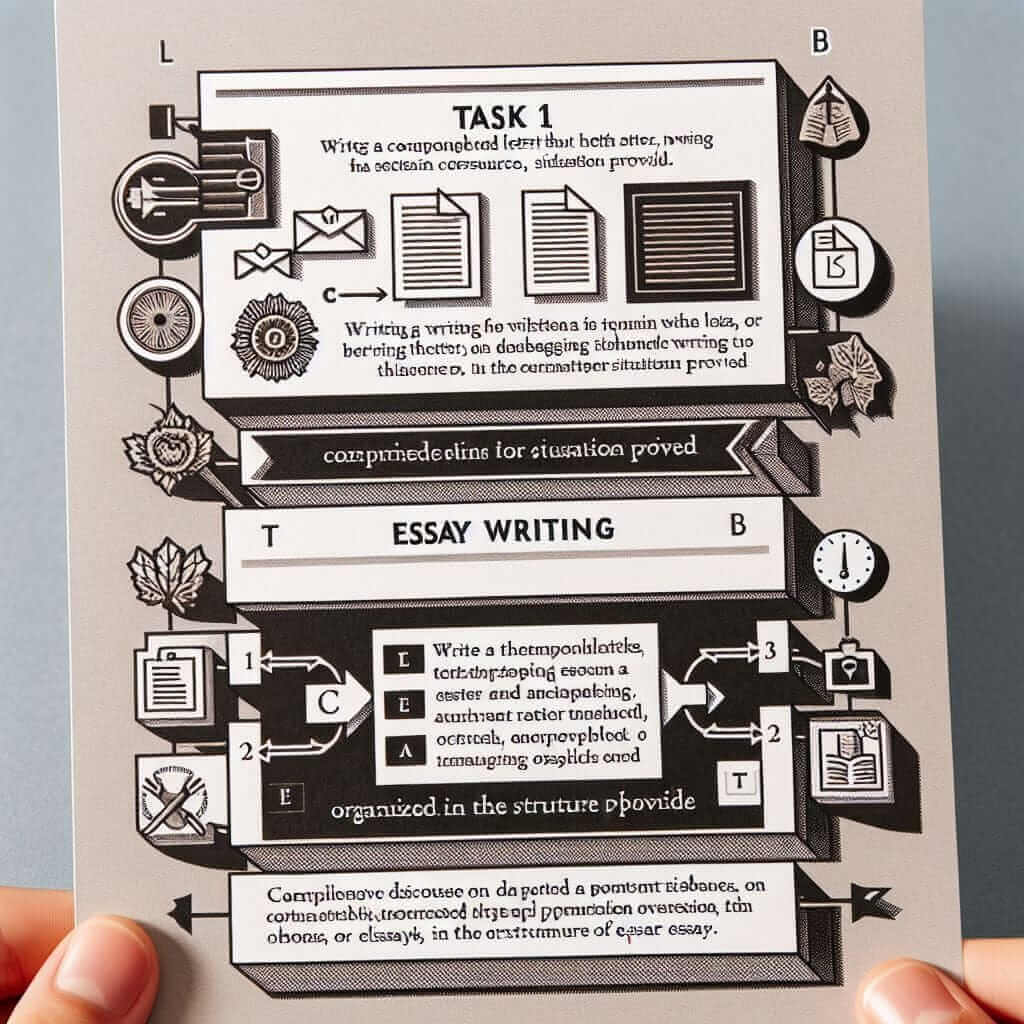Achieving a Band 6 in the IELTS General Writing test reflects a good grasp of English writing skills. It signifies you can communicate your ideas effectively, even if some inaccuracies or areas for improvement exist. This guide will break down the key elements needed to reach this target, providing clear strategies and practical tips.
Understanding the IELTS General Writing Test
The IELTS General Writing test assesses your ability to produce two different types of writing in English:
Task 1 (Letter Writing): You’ll be presented with a situation and asked to write a letter. This could be a formal letter (e.g., to a company or organization), a semi-formal letter (e.g., to someone you know professionally), or an informal letter (e.g., to a friend).
Task 2 (Essay Writing): You’ll be given an opinion, problem, or issue to discuss in an essay format. You’ll need to present your viewpoint, supported by reasons and examples.

Key Components for a Band 6
To score a Band 6, you need to demonstrate competency across four key criteria:
1. Task Achievement
- Fulfilling the Task: Address all parts of the question accurately and completely.
- Clear Purpose: Ensure your letter has a clear purpose, and your essay presents a well-defined position.
- Relevant Ideas: Stay focused on the topic and avoid going off-topic.
2. Coherence and Cohesion
- Logical Organization: Structure your writing with a clear introduction, body paragraphs, and a conclusion.
- Paragraphing: Divide your writing into paragraphs, each with a central idea.
- Linking Devices: Use a range of cohesive devices (e.g., furthermore, however, in addition) to connect ideas smoothly.
3. Lexical Resource (Vocabulary)
- Range of Vocabulary: Use a variety of words and phrases, avoiding repetition as much as possible.
- Appropriate Language: Select words that are suitable for the task (formal, semi-formal, or informal) and topic.
- Accurate Word Choice: Choose words that convey your intended meaning precisely.
4. Grammatical Range and Accuracy
- Sentence Structures: Use a mix of simple and complex sentences.
- Grammatical Control: Demonstrate a good understanding of English grammar rules.
- Accuracy: Aim for a high level of grammatical accuracy, although some minor errors may be permitted.
Strategies for Success
1. Analyze the Prompt: Before you start writing, carefully read and understand the task requirements.
2. Plan Your Writing: Spend a few minutes outlining your main points. This will help you stay organized and focused.
3. Master Letter Formats: Familiarize yourself with the different letter formats (formal, semi-formal, informal) and practice writing each one.
4. Expand Your Vocabulary: Regularly learn new words and phrases, paying attention to their meanings and how they are used in sentences.
5. Practice Grammar: Identify your grammar weaknesses and work on improving them. There are many online resources and grammar books available.
6. Write Practice Essays: The more you practice writing essays under timed conditions, the better prepared you’ll be for the real test.
7. Seek Feedback: Have a teacher or tutor review your writing to identify areas for improvement.
Example: Task 2 Essay
Prompt: Some people believe that technology has made our lives easier, while others argue that it has made life more complicated. Discuss both views and give your opinion.
Sample Introduction:
In today’s rapidly evolving world, technology plays an increasingly pervasive role in our daily lives. While some argue that technological advancements have simplified our routines and enhanced efficiency, others contend that they have led to increased complexity and unforeseen challenges. This essay will explore both sides of this debate before presenting my own perspective.
(Continue with body paragraphs, presenting both sides of the argument and providing examples.)
Conclusion
Achieving a Band 6 in IELTS General Writing is an attainable goal with dedicated effort and focused practice. By understanding the test format, developing key writing skills, and implementing the strategies outlined above, you can significantly increase your chances of success. Remember to practice consistently, seek feedback, and stay motivated.